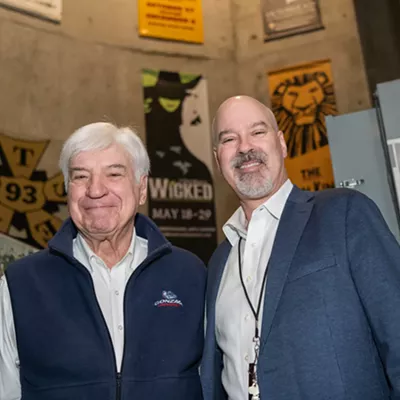St. Francis of Assisi was a hippie. The one-time soldier and rich party-boy found God in nature. Then he got rid of all his stuff — even his shoes — moved to the forest, and devoted his life to serving that ideal. Especially this week, you might think of him as the patron saint of Earth Day.
“Be praised, my Lord, through all your creatures,” St. Francis wrote in his Canticle of the Sun, “especially through my lord Brother Sun, who brings the day; and you give light through him. … Be praised, my Lord, through our sister Mother Earth, who feeds us and rules us, and produces various fruits with colored flowers and herbs.”
Do you think it’s just a coincidence that the Summer of Love broke out in the American city named for him?
It’s encouraging that the new pope took the name Francis. Despite its many problems, the Catholic Church wields massive influence around the world, and throwing its weight behind a lighter human footprint could be a huge victory for the planet. And Jorge Mario Bergoglio — now the first Pope Francis — is no stranger to the ravages that overconsumption has visited upon the poor of Latin America. (It’s been the same story around the world, even here in the United States.)
“We in the Church are calling for an ethics of austerity,” says Luis Scozzina, a Franciscan priest also from Argentina, “a change in lifestyle that leaves behind this frenzied consumption.”
These are tough battles in places where multinational corporations hunt natural resources; standing against that vast machinery of capitalism takes real courage. Pope Francis did just that as a cardinal, co-authoring the pro-environment findings of the 5th General Conference of the Council of Latin American Bishops in 2007. And he signaled that he still holds those values just after being elected. “For me, [Francis of Assisi] is the man of poverty, the man of peace, the man who loves and protects creation,” he told reporters at the Vatican. “These days we do not have a very good relationship with creation, do we?”
In the new book Francis of Assisi: The Life and Afterlife of a Medieval Saint, André Vauchez depicts him as a radical whose message was co-opted by the church in the 13th century — kind of. In the years since, his ideas — in that way righteous ideas do — have never quite been tamed by the Vatican.
St. Francis’s ideas about protecting nature and service to the least among us are resonating again. He set an example few were brave enough to follow completely, but millions have been moved by. If Pope Francis follows his lead, it could help change the fate of God’s creation.




















